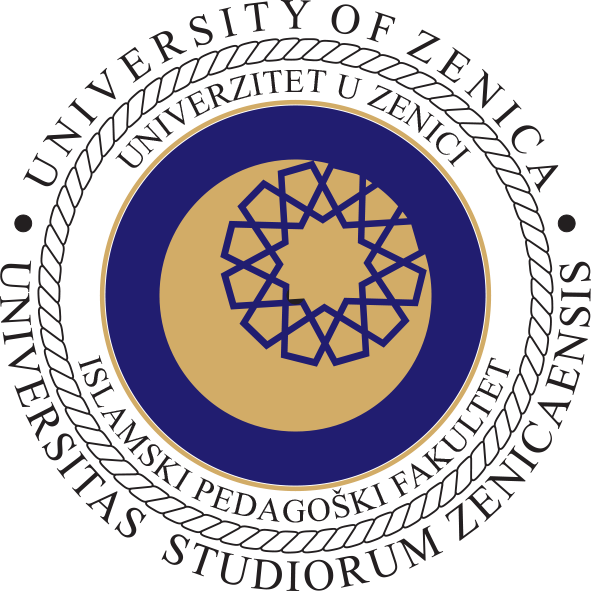Social causes of violence against the elderly in Bosnia and Herzegovina
The paper discussed a complex and insufficiently researched social phenomenon, namely violence against the elderly. The aim of the research was to describe, investigate and explain the social causes of violence against the elderly, and to offer proposals for solving the phenomenon of violence against the elderly in Bosnia and Hercegovina. The follo...
By Sena Družić, Smaila Balić-Rahmanović
Opposite implicit meaning of a legislative text (mefhūmu-l-muhālefe) in the Shafi’i school of law
This paper attempts to elaborate on the Shafi’i school of law scholars’ theoretical interpretation of the acceptance of the opposite implicit meaning (mefhūmu-l- muhālefe) method in the ijtihad and the consequences of such interpretation on the derivation of legal regulations in that school. At the beginning of the paper, we briefly explain the dis...
By Šukrija Ramić
The influence of qira’at on war law regulations
Islam is primarily the religion of peace, it promotes love and obedience to the Supreme Lord, and then love and respect towards His creatures, and particularly humans as the most eminent creatures. Allah, the Exalted, vehemently condemns unlawful taking of other being’s life. Moreover, the Qur’an rejects the excessive use of force in retaliating ag...
By Safet Husejnović
Correlation analysis of the impact of screen media on young children’s development
Healthy emotional and social development in childhood is an important predictor of an individual’s future academic success. Unfortunately, more than 20% of children have a developmental problem that occurs as a result of exposure to screen media. This research examines the potential risks of screen media among children, which are reflected in child...
By Nusreta Kepeš
Views on identity in moving from „me“ to „us“ and from „is“ to „should“
The paper presents sociological views on identity from terminological ambiguity to theoretical and functional openness in accordance with the needs of the individual and the society that is changing and evolving. From an interactionist point of view, identity is formed through communication and action; in the structuralist sense, it represents the ...
By Melisa Zukić
Psychological and social challenges of the pandemic from the preschool educators’
The aim of this paper is to explore mental health challenges (operationally defined primarily through the DASS questionnaire – depression, anxiety and stress), but also the social aspect of individual stability due to the pandemic among educators in Bosnia and Herzegovina, taking into account the fact that kindergartens did not work, that some educ...
By Muharem Adilović, Amina Odobašić, Aldina Leto
Tactics, measurement and determinants of self-presentation
The paper aims to present the taxonomies of self-presentation tactics, the instruments for investigating and measuring the forms of self-presentation, as well as the determinants of self-presentation. The paper presents and describes the taxonomies of self-presentation tactics developed by Jones and Pittman (1982), Tedeschi (1981), Tedeschi, Lindsk...
By Almira Isić-Imamović
THE QUALITY OF THE DEVELOPMENT OF ECOLOGICAL AWARENESS THROUGH ISLAMIC EDUCATION AT SCHOOLS
The aim of this paper was to examine the quality of the development of ecological awareness through Islamic Education at schools, i.e. based on Islamic Education teachers' stances to determine the extent to which ecology-related content in elementary school textbooks stimulates the development of students' ecological awareness, and to examine the t...
By Nermin Tufekčić
UNDERSTANDING THE BASIC TERMINOLOGY OF TAJWEED
The practice of accurate pronunciation of the Qur'anic harf, lengths, idgams, etc., is certainly a matter of skill in tilavet, and there is no skill without systematic work and practice. The practical, sound-related aspect of reciting the Qur'an is only one segment of Tajweed, i.e. its artistic dimension. However, when we say 'ilm et-tajweed', we r...
By DŽevad Šošić
CORPUS-BASED STUDY OF THE MODAL VERBS IN THE SPOKEN AND ACADEMIC GENRES OF THE CORPUS OF CONTEMPORARY AMERICAN ENGLISH
This corpus-based study focuses on the nine English central modal verbs (can, could, will, would, may, might, shall, should, and must) across the two chosen genres of the COCA corpus – Spoken and Academic genres, which show the greatest number of differences in terms of genre characteristics, such as formality or intended audience. Because research...
By Edina Rizvić-Eminović, Đelaludina Šukalić


